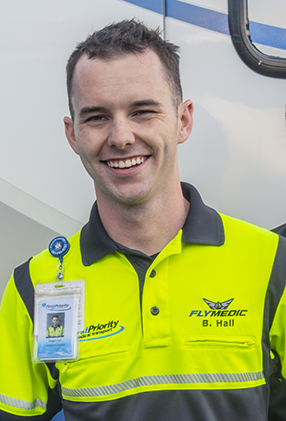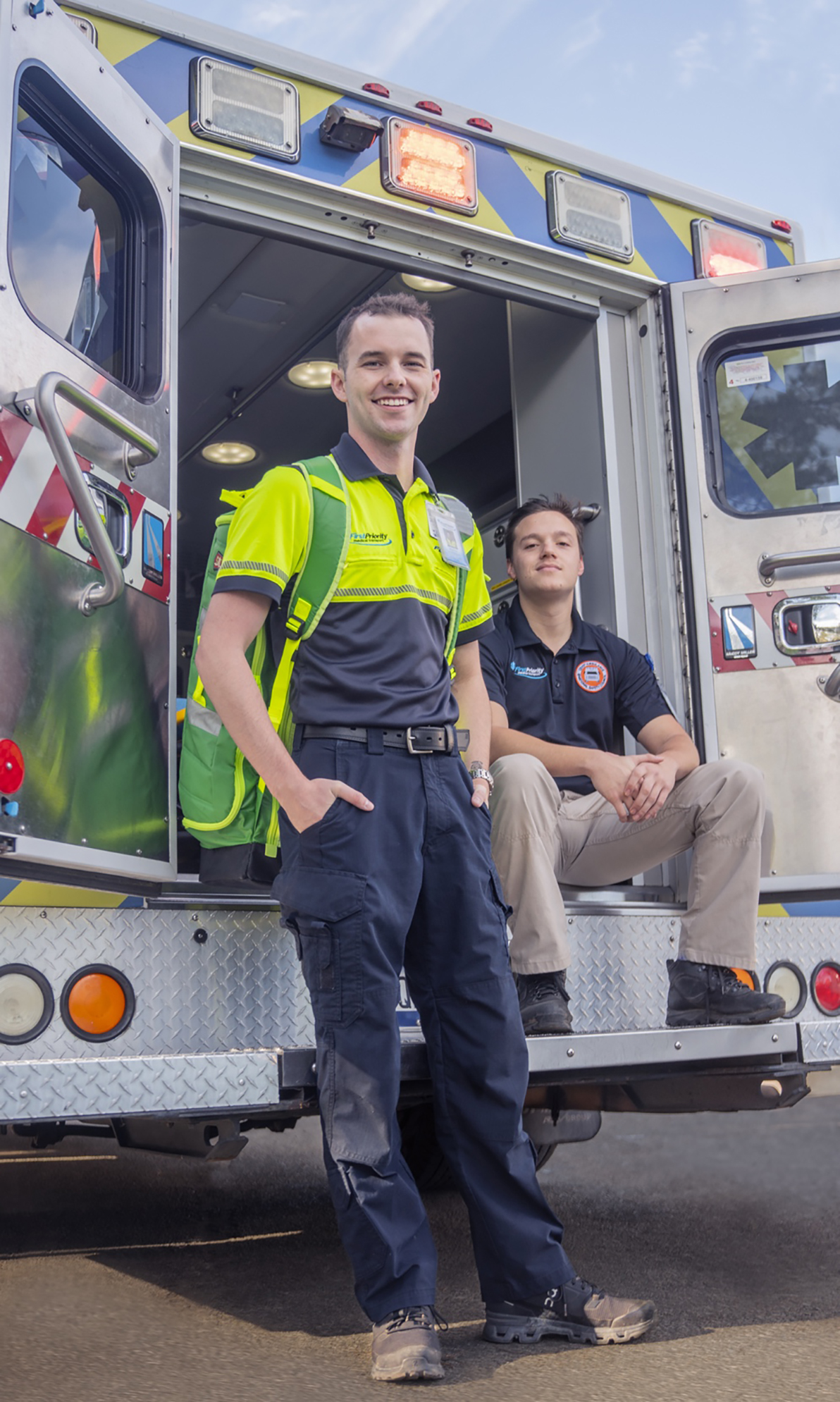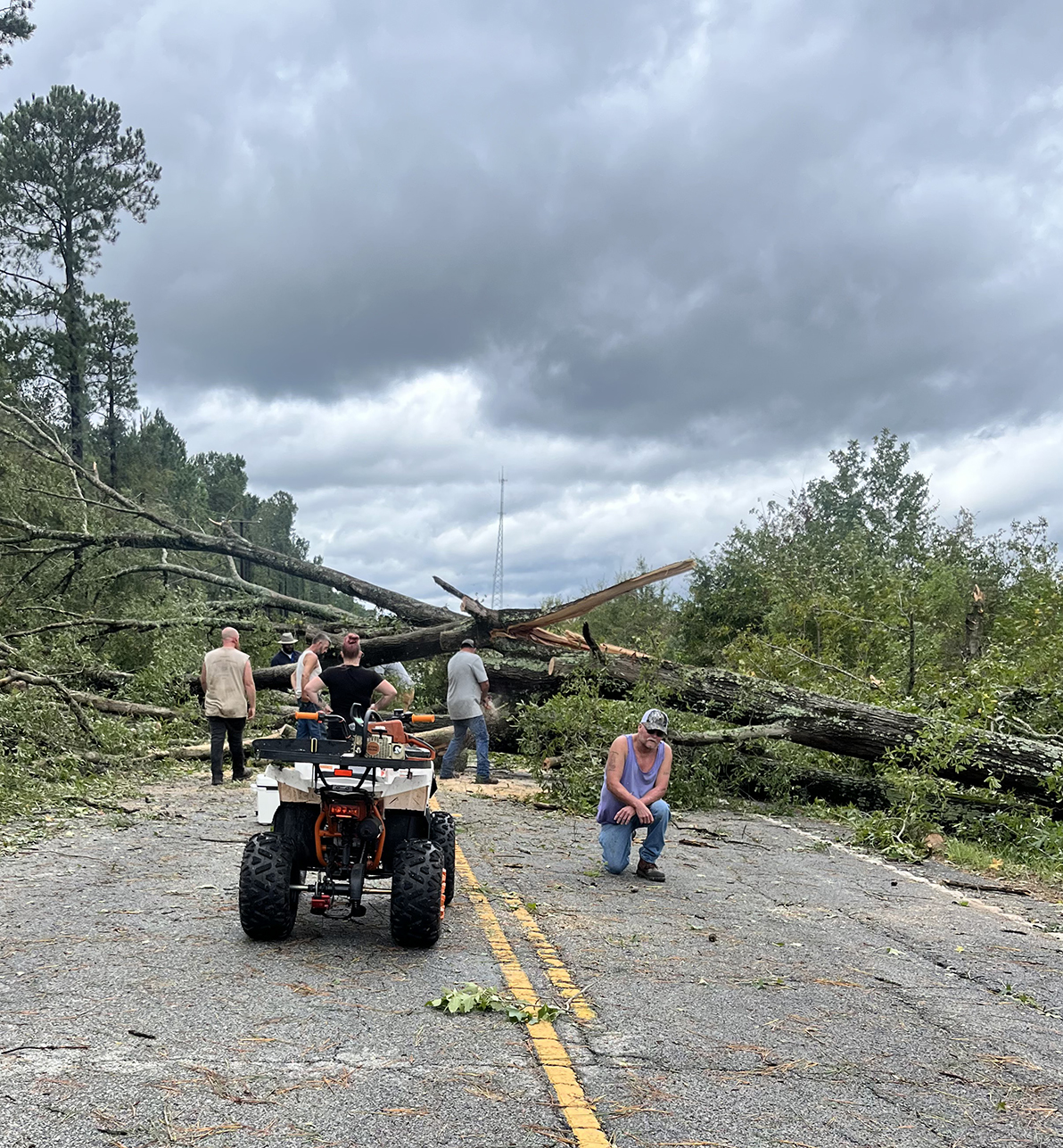At just 21 years old, Bergen Hall has earned both his EMT and paramedic certifications and has been promoted to the rank of captain with First Priority Medical Transport in Cayce, SC. He admits that, while the COVID pandemic put a halt to many things, it had the reverse effect on his career growth.
You graduated from high school a year early, in 2020. How did the pandemic throw a curve ball at your dreams?
For the longest time, I knew that I wanted to practice emergency medicine as a physician. That meant going to a 4-year college, attending med school, and completing my residency. I got accepted to my dream school, which was Princeton, but because of COVID, I made the decision to stay local and pursue my bachelor’s degree in Biochemistry at USC.
And it sucked! We weren't living in dorms. Everything was socially distanced. All of the fun and exciting parts of college were missing. It was just school. And not even regular school. Virtual school. That was super hard. So I completed my first year at USC and decided to attend my second year at USC Upstate.
But… surprise! Something happened between those two years.
Yes! I got a summer job helping the maintenance guy repair the ambulances at First Priority Medical Transport. When I learned that First Priority employed non-certified drivers, I thought, Maybe when I’m not doing maintenance, I’ll start driving and pick up some extra hours.
That’s what I did, and I loved it! So when First Priority launched their EMT program, I was in their second class. Then, probably three weeks after becoming an EMT, I started paramedic classes at Midlands Tech’s Airport campus. Both are continuing education programs, but the resources the college provided were the exact same resources that a credit student would receive – things like hands-on equipment, a model ambulance with a stretcher in the classroom, and phenomenal instruction by Benji McCollum, who taught me how to meet people where they are and was instrumental in shaping me into a “people-first person.”
And to top it all off, the year I completed paramedic school was the same year that the governor approved funding for workforce development programs, so all of my expenses were covered. Everything about it was a superior education experience.
And you were doing all of this at the tail-end of the pandemic?
Yes, and being so early in my training during such an unforgettable event wasn’t easy. Doing the ventilator transfers from ICU to ICU and struggling to get a hold of PPE... Not only were we worried about patients and family members, but we were also worried about our own providers having exposure and risk, on top of running patients in crazy settings that I haven’t seen since and learning skills that had never been practiced before. I'm grateful to have avoided the brunt of the pandemic. But I'm also grateful to have seen how it shaped healthcare in both the short- and long-term.
It seems like your professional growth and First Priority’s growth as a business sort of happened in tandem. First, tell us about First Priority.
First Priority started out as a super small business 12 years ago, working primarily with dialysis patients and helping hospitals with transfers where they could. Then they founded an Advanced Life Support (ALS) program and started actively seeking out paramedics to provide more advanced support to patients. Since then, they’ve built a reputation for professionalism and quality customer service, and they’re now the primary service provider for the major healthcare systems in the Midlands. The growth that I’ve witnessed in the four years that I’ve worked at First Priority is crazy!
Speaking of growth, you appreciate the opportunities that have been afforded to you by First Priority, including a promotion to the rank of captain. What do you do in that role?
As captain, I do a mix of clinical and administrative work. I'm responsible for the day-to-day operations, which include managing crews that are coming on shifts, managing our resources and assignments, and coordinating with other agencies. I interact a lot with partner hospital staff and help them resolve their issues, and when I’m lucky, I get to go on two or three calls a day to assist people.
This position has also allowed me to take on a mentor role, which I love. If there's ever a bad call or something that somebody's unsure of, I get to go out there and provide support, even if it's just a safety net that I'm there and can mentor them through these situations. I love that First Priority grants me space to grow as a leader and as a provider and to be a part of all the big changes taking place in healthcare.
And I guess all of this has kind of been your destiny from the very beginning…
I think so! In fact, I can point to three things specifically. One: My dad is a paramedic, and my mom is a nurse practitioner with a specialty in emergency medicine. Two: My dad was taking his final exam for paramedic school on the day I was born. And three: I grew up in an EMS station. When I was a kid, my dad worked with Lexington County EMS, and my mom was a cardiac ICU nurse. On her days off, when my dad was working 24-hour shifts, she'd take me and my sister to the fire station where the ambulance stayed when they didn't have a call. We'd go hang out there, and they'd let me roam in the ambulances and the fire trucks. They'd always be showing me something new and fascinating.
Seeing some of those emergency personnel today who knew me when I was in diapers – which is weird every time – they’re like, “Oh, my! Your dad used to bring you to Station 16.” A lot of those guys are still working in the field. And now I am. I guess things have come full circle.

Bergen Hall
Midlands Technical College
"I'm grateful to have avoided the brunt of the pandemic. But I'm also grateful to have seen how it shaped healthcare in both the short- and long-term."
Heroes Helping Heroes
When SC was on Hurricane Helene watch in late September, Bergen Hall had plans to travel to Helen, GA, to celebrate Oktoberfest with his friends. Then the request came in for statewide aid to Greenwood County, and Bergen and his partner, Brandon Bacon, packed their spend-the-night work bags and stepped into hero mode instead.

The pair raced to provide mutual aid for the county’s 911 calls and a population suffering from widespread power outages, disrupted communications, resource shortages, and environmental devastation.
Unfortunately, they found themselves stuck in a quarter-mile radius in Newberry County when a tree fell that blocked the way they came in, and they couldn’t find another way around.
But it wasn’t the fire service or the tree companies that came to their rescue. It was the local citizens. “When they saw that we were trying to get to an emergency, this group of people came together to cut down a huge oak that was the only thing standing between us and where we needed to be,” Bergen recounted.
Three hours later, Bergen and Brandon were back on track and working alongside ambulances from Lexington, Greenwood, and Lancaster Counties to provide aid in the hurricane’s aftermath.

But they couldn’t have done it without the help of those hometown Good Samaritans. “I’m so grateful and humbled to have witnessed the way that community came together,” Bergen reflected. “It gave me the warm-and-fuzzies, for sure!”